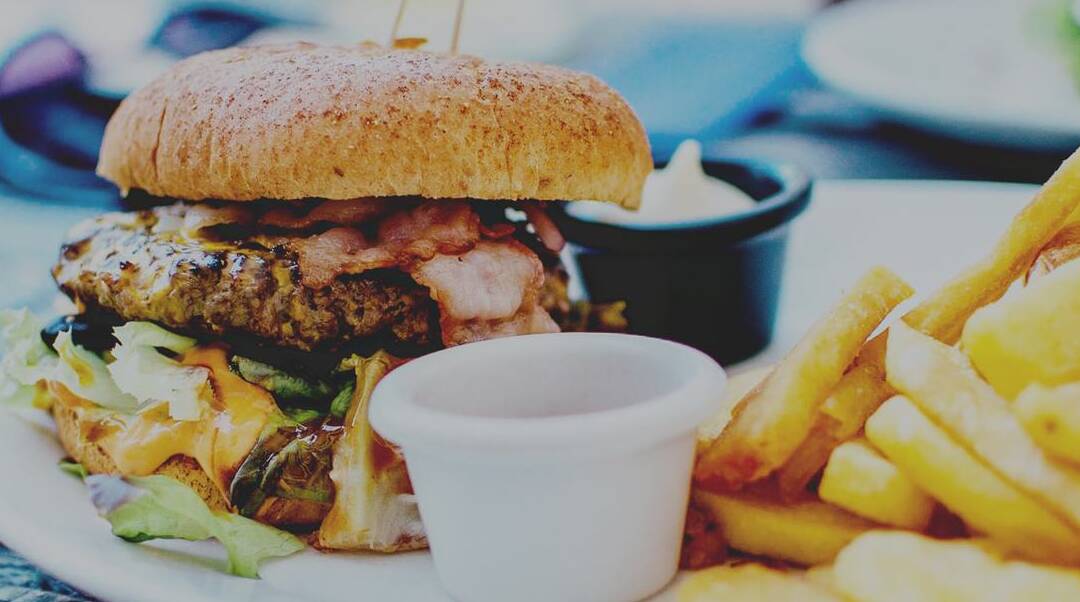Are You Hard-Wired to Overeat?
You know how it goes.. the overeating guilt afterwards — stuck in that loop of stressing, overeating, regretting, negative self-talk and giving up. Starting again.
You’re full, you know you’re full, you even get to the point of pushing the plate away. complaining “ I feel sick, I’ve eaten too much”
But 5 mins later your picking at what’s on your plate.. “what am I doing!!” and you sink back into what it was you were doing and tune out
Only to snap out of your trance to notice that you are eating again.. the sick feeling starts to grow as your stomach has been stretched beyond what it should hold and that heavy feeling in your gut sinks in.
So why does this keep happening…
It could be self-sabotage or oral fixation or both…
Maybe your ‘why’ is Oral Fixation.
Your subconscious has been around since you were born, your oral pleasure and relationship with the first source of nutrition revolve around breastfeeding.
Imagine, an experience we can’t even remember taking control of us in more ways than we thought.
Let me explain…
If you were underfed or overfed very often when you were an infant, your subconscious may have mastered habits and responses (even craving patterns) that revolve around oral gratification.
But there’s more…
Because you were given pleasure via feeding at such a young age, your brain’s subconscious not yet having critical thinking and rational functions developed a strong association with oral stimulation and pleasure.
These are carried over to adulthood as more pertinent, automatic and unconscious behaviour.
I’ll explain further…
Psychoanalyst and Psychology pillar Sigmund Freud describes fixations in general as our childlike impulses to gratify basic needs. As you’re still unconsciously trying to resolve this issue that’s rooted in your childhood, you’re still fixated on constantly finding satisfaction in eating, drinking, and smoking, among other oral activities.
Does this sound like you?
Do you like to sing, deliver speeches, or study languages?
Perhaps, do you like putting things through your mouth? Like alcohol, soft drinks, food, cigarettes, or your nails, find yourself chewing on pens or chewing gum.
Were you a thumb-sucker for a considerable time when you were almost a toddler? Do you bite your nails if you’re nervous?
If so, you may have carried and nurtured that strong connection between pleasure and oral stimulation in your adulthood without even noticing it.
Further to this…
Part of psychoanalyst Freud’s “oral receptive personality” also explains the use of oral gratification to find reward and/or reduce tension in stressful instances.
This means every time your mouth feels anything or does anything, you feel some subconscious form of gratification and pleasure just like when you were an infant — and because you do, stressed or not, you’d just like to eat to feel pleasure.
And therefore…
While seemingly simple and harmless, the automatic thought process of finding pleasure or satisfaction in eating can contribute to strengthening unhealthy automatic behavioural responses which can either be exacerbated by stressful or anxiety-inducing events or simply go easily unnoticed during everyday living.
Primarily, finding pleasure in oral gratification can only be the start of an unnoticed loop and the tip of the iceberg. How you mastered overeating can be understood in more deeply rooted reflexes and triggers. (but that’s a whole other blog post)
So what can we do about it?
Below I’ve included 3 easy ways and you might like to read this next: Why you Self Sabotage your Weight Loss Goals
3 Easy Ways to Completely Eradicate overeating
Be Subconscious curious
You now know that overeating — like many habits, patterns, and even attitudes — is a mastered and conditioned skill. The younger you are and the more you practice it, the deeper it goes into your subconscious.
Before you decide on changing, it helps to know which specific parts you’re going to act on, or rather which habits, patterns or attitudes you want to tackle first.
To tackle change you need to learn about what actually is in your subconscious, what are your patterns, behaviours, and attitudes and we’ve got the tools and tips to help you!
- Evaluate the present reward and punishment mechanic of your eating. Try this for a week, every single time you overeat, stop and ask questions. What feelings or thoughts came before or after your overeating? What do you expect to feel? Is what you are experiencing based on the past or you don’t know? Compare it to the past. This will help heighten your awareness of certain processes or behaviours that drive your overeating habits and deal with them head-on.
- Try hypnotherapy: Hypnotherapy works with the part of your brain that stores habits and behaviours as it allows you to delve into old memories, possible trauma, unprocessed guilt issues, and other subconscious connections that you created as a child that no longer serve their purpose as an adult.
- Ask your relatives or parents about family traditions or your eating habits as far as going back to infancy and early childhood. What were the conditions back then? What were you like as an infant or child around food?
- Question your self-defeating statements — are they absolutely real? Where do they come from? Work on processing them better and understand yourself in a kinder, more forgiving way.
- Be kind as you journey through change, you don’t know what you don’t know. Being open to what you find will help rather than being scared of it will help break subconscious standards that punish you and burn your motivation away. Being able to steer away from “should” and “must” will allow for openness for growth, change, and development.
Conscious Practice for Your Subconscious
Our subconscious was created by conscious actions, decisions and thoughts we’ve had and practised ever since we were kids. We may have formed it on the logical and rational level of a child, but they’re part of us now.
The good news is we can still build a subconscious with the consciousness of our more mature selves with a wealth of knowledge compassion and understanding.
It’s going to be hard in the first few steps. It takes time to build habits and mastery over new skills and with the right tools and tips it’s easier than you think.
- You’re stronger than you think — and even if the change is difficult, you’re made to break the limits you’ve put on yourself.
- Aim small and sure, instead of sudden and huge changes in your diet. Setting smaller more manageable goals helps boost motivation and step by step steer you in the right direction.
- Adopt an “it’s okay to fail it’s a fast way to learn” mindset. Refrain from punishing yourself because you can’t be perfect — you can only try for the best you can.
- If you’re about to emotionally overeat, step back and do something else like singing, drinking water, or vocalizing to retrain your automatic oral fixations from eating to something that serves you better.
- write a diary or document of your old habits, triggers and the new habits you want around food — including the whys and the pros of your new habits.
- Reframe your negative self-talk: for example, Instead of “I’m such a pathetic failure.” To “I need to practice this more, I will succeed”
Master the Changes
Mastering new ways to cope with stressors and being light-handed to oneself is tricky — considering that those are factors that lead us to compulsive eating.
You’d notice that most of the time, you remember your mistakes over your successes, this is because our brains are hard-wired to be alert to the negative, a danger, but unless there are tigers in our pantry we no longer need to be so ‘negative alert’. To be able to master changes in your relationship with food, subconscious changes including purely conscious will, you will have to do some work:
- Consciously commit to noticing the positives more to motivate yourself.
- Don’t compare yourself to others, rather, compare yourself to who you were yesterday or last week (not a year ago, to be clear, that’s too far.)
- Failure may be painful at times but you can also change how you take it — by consciously willing yourself to think of it as an opportunity to grow instead of a reflection of your inadequacy or a hole you can never get out of.
- Give yourself rewards (that are not food related) if you’ve completed a week of being in control of overeating
- Build positive associations between your new actions and slowly work yourself up
- Focus on the quality of the step you’re taking instead of the next hundred steps in your journey
MINDSET

Ultimate Guide to Weight Loss for the Time Poor
10-MINUTE...
WEIGHT LOSS HYPNOTHERAPY

Resist Eating Chocolate Hypnosis
Hypnotherapy Session...
NUTRITION

Moist and Light Flourless Carrot Cake
Moist and Light...

